Neuroscience
-
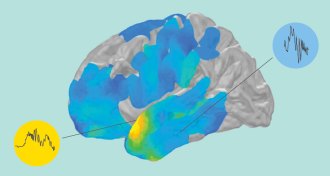 Health & Medicine
Health & MedicineRipples race in the brain as memories are recalled
A fast brain wave called a ripple often came before a person’s correct answer on a memory test.
-
 Neuroscience
NeuroscienceHow singing mice belt out duets
A precise timing system in the brain helps musical rodents from the cloud forests of Costa Rica sing to one another.
-
 Health & Medicine
Health & MedicineWatching hours of TV is tied to verbal memory decline in older people
The more television people age 50 and up watched, the worse they recalled a list of words in tests years later, a study finds.
-
 Health & Medicine
Health & MedicineWith its burning grip, shingles can do lasting damage
Varicella zoster virus, which causes chickenpox and shingles, may instigate several other problems.
-
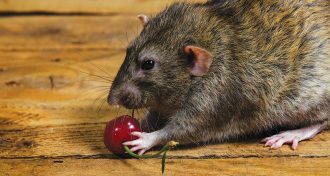 Neuroscience
NeuroscienceBrain cells combine place and taste to make food maps
A select group of brain cells responds to both flavor and location, a specialty that may help an animal find the next good meal.
-
 Neuroscience
NeuroscienceBrain discoveries open doors to new treatments
Editor in Chief Nancy Shute discusses the history of neuroscience and new techniques scientists are using to influence the brain.
By Nancy Shute -
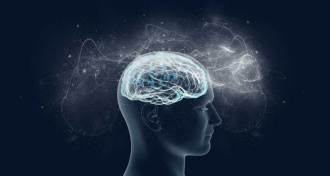 Neuroscience
NeuroscienceBrain scans decode an elusive signature of consciousness
Newly described patterns of brain activity may help reveal the level of awareness in people with brain injuries.
-
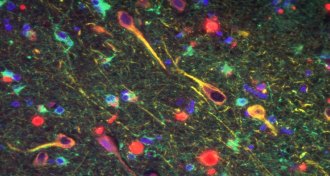 Neuroscience
NeuroscienceNo, we don’t know that gum disease causes Alzheimer’s
A recent study linked gum disease and Alzheimer’s disease, but the results are far from conclusive.
-
 Neuroscience
NeuroscienceRocking puts adults to sleep faster and makes slumber deeper
People sleep better when their beds are gently rocked, a small study finds.
-
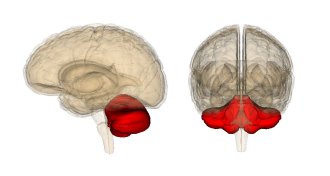 Neuroscience
NeuroscienceThe cerebellum may do a lot more than just coordinate movement
A study in mice finds that the cerebellum helps control social behavior, a result that has implications for autism and schizophrenia.
-
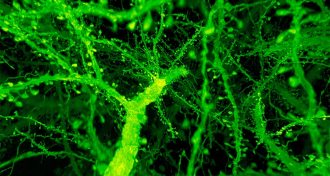 Neuroscience
NeuroscienceNew ways to image and control nerve cells could unlock brain mysteries
Methods that target single nerve cells in mice and fruit fly brains are starting to tease apart the brain’s complexity.
-
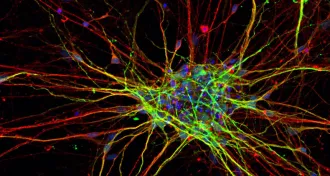 Neuroscience
NeuroscienceNerve cells from people with autism grow unusually big and fast
In some forms of autism, nerve cells develop faster than normal, possibly setting the stage for the disorder, a study finds.